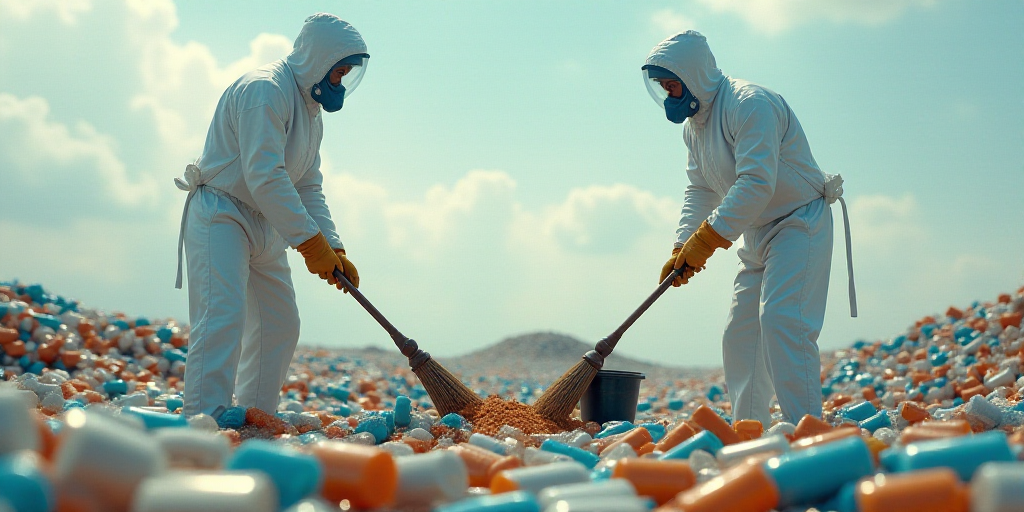Key Countries on the List
The United States has presented its annual determination to Congress regarding the fight against drug trafficking, identifying 23 countries as significant producers or transit points for illicit drugs. The list includes Afghanistan, Bahamas, Belize, Bolivia, Myanmar, China, Colombia, Costa Rica, Dominican Republic, Ecuador, El Salvador, Guatemala, Haiti, Honduras, India, Jamaica, Laos, Mexico, Nicaragua, Pakistan, Panama, and Peru.
Geographical Factors and Trade Routes
The White House clarified that a country’s inclusion in this list does not necessarily reflect its government’s level of cooperation in the anti-drug efforts. The factors determining a country’s designation include geographical location, trade routes, and economies that facilitate drug transit or production, even in countries with strict controls.
Recurrent Non-Compliance and Continued Assistance
Five nations—Afghanistan, Bolivia, Myanmar, Colombia, and Venezuela—were singled out for repeatedly failing to meet their international drug control commitments in the past year. However, the U.S. administration stated that assistance to Bolivia, Myanmar, Colombia, and Venezuela will continue as it serves U.S. national interest.
Fentanyl Crisis and Border Security
The presidential memorandum dedicates significant space to the fentanyl crisis, declared a national emergency due to its impact on public health. In 2024 alone, the U.S. recorded over 200 daily deaths from overdose, becoming the leading cause of death among Americans aged 18 to 44. According to the White House, strengthened border security has started to reverse this trend, with the first significant decrease in overdose deaths in more than a decade.
International Cooperation and Mexico’s Efforts
The document acknowledges progress in Canada, which created the role of a “fentanyl czar,” and Mexico, which deployed 10,000 Guardia Nacional members along the shared border, seized chemical precursors, and handed over 29 cartel leaders to U.S. authorities. Washington warned, however, that these actions must be sustained and deepened to eradicate clandestine labs and disrupt illicit supply chains.
“My administration has worked closely with President Claudia Sheinbaum to achieve the safest Southwest border in history, saving lives and protecting communities from the scourge of fentanyl. This increase in Mexico’s efforts must be sustained and institutionalized,” the document states.
Challenges and Future Actions in Mexico
Washington acknowledged that Mexico still faces the challenge of more forcefully targeting drug cartels, their clandestine labs, chemical precursor supply networks, and illicit finances. The White House anticipates seeing more decisive actions in the coming year to dismantle these structures and bring their leaders to justice.
Unilateral Action and International Partnerships
The U.S. announced its continued collaboration with Mexico and other countries to jointly address drug trafficking threats, but warned of unilateral action when deemed necessary. The White House reminded that designating Mexican cartels as terrorist organizations allows for the use of new tools, such as economic sanctions and enhanced judicial powers, to dismantle these networks.
Additionally, the government implemented visa restrictions for relatives and associates of drug traffickers and emphasized that producer and transit countries must fulfill their international drug control commitments, facing severe consequences if they don’t.
Tightened Stance on China
Regarding China, the U.S. government has hardened its stance by imposing an additional 20% tariff and eliminating duty-free treatment for low-value imports, arguing that the Asian nation remains the largest supplier of chemicals used to produce fentanyl and other synthetic opioids.
Donald Trump signed an executive order eliminating the de minimis benefit, which exempted low-value imports from tariffs, for shipments originating from China. According to Washington, this mechanism was used by Chinese companies to conceal illicit substances in legal trade.
The document also warns that China remains one of the primary sources of chemical precursors fueling the production of synthetic drugs like fentanyl, nitazenes, and methamphetamines. The White House urged Beijing to take firmer and sustained measures to curb these flows and prosecute those responsible for this illicit trade.
Colombia’s Drug Cultivation and Production
The presidential determination highlighted Colombia’s record-breaking coca cultivation and cocaine production under President Gustavo Petro’s administration, along with the failure to meet eradication targets. This, according to the document, has weakened years of bilateral cooperation. However, Washington left open the possibility of reversing Colombia’s designation if the country adopts more robust measures to reduce cultivation and strengthen judicial cooperation.
Responsibility and Potential for Improvement
Secretary of State Marco Rubio directly held President Gustavo Petro responsible for Colombia’s descertification. “Unfortunately, today we have a leader who, in addition to being erratic, has not been a reliable ally in the fight against drug cartels. Under his leadership, the country does not meet standards,” Rubio stated.
Rubio added that Colombia still has the possibility of regaining certification if it meets certain conditions. “Currently, they face deficient leadership, especially on the issue of drugs. But they can change; be more cooperative and meet the criteria to leave the descertification list,” he noted.
Venezuela and Bolivia’s Status
Venezuela was classified as one of the world’s leading cocaine trafficking hubs, while Bolivia received partial recognition for increased seizures but was warned against becoming a sanctuary for criminal organizations.
The report also cautioned that Afghanistan remains a key player in opium and methamphetamine production, with profits funding criminal networks and international terrorist groups.
Through this determination, the U.S. reaffirms its intention to exert pressure on producer and transit countries to curb the flow of drugs into its territory, combining bilateral cooperation, sanctions, and border security measures.






